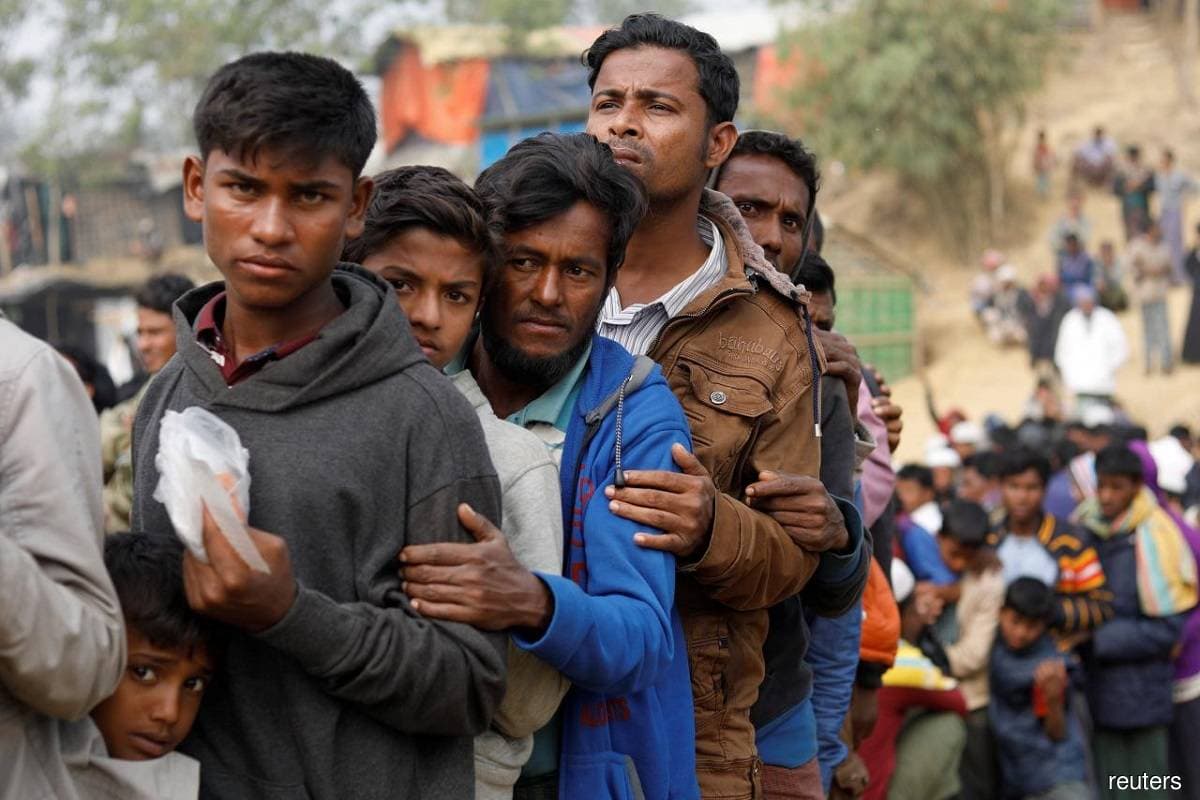
The Malaysian Advisory Group on Myanmar (MAGM) is alarmed at the events of April 20, 2022, where 528 Rohingya refugees, including women and children, who were incarcerated for an indefinite period at the Sungai Bakap Temporary Detention Centre in Bandar Baharu, Kedah, fled the detention camp following a riot.
Six lives were lost — two men, two women, a girl, and a boy — in road accidents on the highway as they sought to escape. They were NOT criminals; they were escaping genocide in Myanmar; they escaped to Malaysia in rickety boats to get a fresh start in life; and instead, they were put in detention camps where the greater uncertainties and lack of total liberty of movement forced them to escape.
There are unconfirmed reports that the protests, or riots as the authorities term it, and the subsequent escape was triggered by the death of a fellow Rohingya detainee who had not been given adequate medical treatment when he was ill.
Since the MAGM’s establishment following the military coup in Myanmar last year, the Advisory Group has been monitoring the situation of civilians and refugees from Myanmar, including Rohingya, who have been forced to leave their homeland by taking hazardous sea and land journeys to escape persecution, torture, and death.
The Rohingya refugees who sought refuge in Malaysia have been subjected to prolonged detention and poor conditions that forced them to flee once again. Not only is the situation distressing, it is inhumane.
The inhumane conditions have not escaped the notice of local and international aid agencies as well. Nine, just nine days prior to the Sungai Bakap episode, Malaysian Human Rights Commission (SUHAKAM) called for the release of Rohingya detainees from immigration detention and for appropriate protection to be granted to them.
Releasing Rohingya refugees from detention is even more important as they cannot be deported to Myanmar due to the country’s denial of citizenship to Rohingya, rendering them stateless.
It must be reiterated that Rohingya who seek a safe haven in Malaysia are genocide victims.
Therefore, it is a gross act of natural injustice to criminalise victims of crimes against humanity.
Indeed, SUHAKAM, the Malaysia Bar and others have, for many years, called for an end to the detention of refugees, invariably in overcrowded and under-resourced immigration detention centres, which traumatise and harm women and children.
Barely a month ago, on March 17, 2022, the Deputy Minister of Home Affairs reported that between 2018 and Feb 15, 2022 a total of 208 persons had died in immigration custody. If Malaysians are not alarmed by these figures, then, they should be.
While Malaysia, for political, security, social, and economic reasons, does not legally recognise refugees, we have also defended the human rights of Rohingya at regional and international fora. After the discovery of 139 graves on the Malaysia-Thai border in 2015, the Sungai Bakap tragedy makes these protests sound hollow and hypocritical.
Malaysia has had opportunity time and again to show itself to be a country where the rule of law and human rights prevail. Yet, the comments by the Home Ministry and the Director of General of Immigration seem to show a nonchalant and blasé attitude in as far as the lives of the Rohingya refugees are concerned.
Even if we try to forget the reputational cost to the country, we cannot escape the fact that in the eyes o the international community, the inaction after the discovery of the 139 graves at Wang Kelian led to Malaysia being downgraded to the lowest tier in human trafficking by the United States. This will have possible long-term repercussions on how global stakeholders perceive Malaysia as a trade and investment destination of choice.
In 2018, Malaysia signed both the UN Global Compacts of Migration and on Refugees. While these are non-legally binding instruments, they signify the effect the country’s intention to work towards higher standards of treatment of those fleeing persecution, torture, and death.
Malaysians need to be made aware that the indefinite detention of stateless and other forced migrants is untenable in practical, legal, and moral terms. The country needs to be cognizant that it is possible to prioritise local political, security, social and economic considerations, yet treat these vulnerable communities in a humane and dignified manner.
Accordingly, we strongly urge the government to:
- Conduct an independent inquiry into the Sungai Bakap incident and tragedy, make the facts publicly known and, if needed, hold those responsible accountable;
- Grant UNHCR and SUHAKAM access to all immigration detention centres to interview the remaining detainees and inspect conditions at the centre;
- Work with the UN High Commissioner for Refugees office in Kuala Lumpur to undertake refugee status determination (RSD) for all those in detention who have not undergone it;
- Release all detainees who, after RSD, qualify for a UNHCR card together with administrative conditions and supervision;
- Include Rohingya in the government’s Alternatives to Detention (ATD) for children pilot project that officially started in February 2022; and
- Improve conditions inside the immigration detention centres, including ensuring adequate access to medical treatment for detainees.
Tan Sri Dato’ Seri Syed Hamid Albar
Chairman
Malaysian Advisory Group on Myanmar